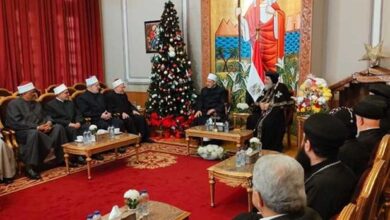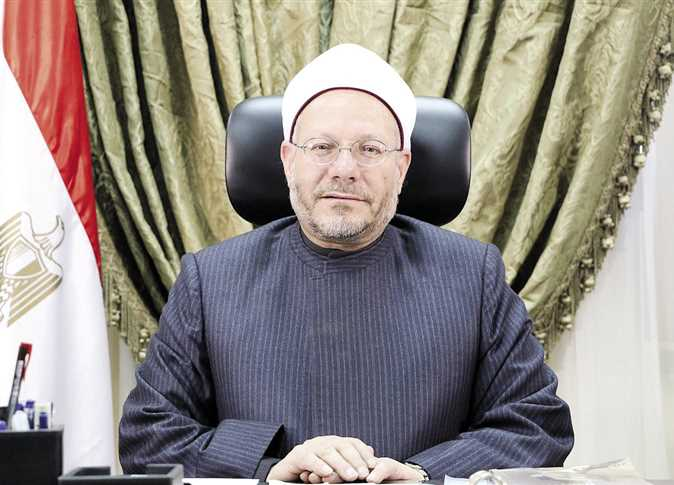
After the Islamic State (IS) militant group declared its responsibility for Palm Sunday's deadly attacks that targeted two Coptic churches in Egypt's Delta and Alexandria city, several media figures and organizations launched severe attack against Egypt's largest religious institution, Al-Azhar University, considering its teachings as fostering religious extremism.
Through these outlets, Al-Azhar is now facing the backlash of taking part in supporting the IS-affiliated members through its insistance to refuse considering the IS group as 'apostates' and through maintaining some extremist teachings in the syllabuses that are taught to its students.
The backlash criticized the educational syllabuses that are being currently taught in Al-Azhar institution that include teachings from some prominent clerics. These teachings directly incite the brutal killing of anyone who does not follow Islam or who had been deemed to be an 'infidel'.
The criticism, released from those figures and other media outlets, accused the aforementioned teachings of Al-Azhar by increasingly contributing to generate numerous members affiliated to IS.
Moreover, Al-Azhar’s teaching are perceived by some as the main platform that legitimizes the killing and slaughtering which are currently being practiced by IS group in different parts of the world, in the name of Islamic (Sharia) law.
In several speeches, President Abdel Fatal Al-Sisi called on Al-Azhar officials to rapidly launch a campaign that aims to renew the religious rhetoric in Egypt, for the sake of providing the right explanation to the Islamic religion
Back in December 2015, Egypt's Al-Azhar Grand Sheikh Ahmed al-Tayyeb publicly announced that he does not have the right to declare IS an 'apostate' group since IS members believe in God and doomsday (Youm al-Qiyama).
His statements have stirred massive controversy and criticism among social media users, as well as political and intellectual figures.
In 2015, he further asserted through footage that documented his visit to Cairo University, that Al-Azhar considers IS members as 'Khawarij' (sects that adopted rebellion against Islam's leaders following Prophet Muhammad's era and committed sins).
According to Al-Tayyeb's explanation, the Khawarij are Muslims who committed unprecedented sins, however they still believed in [Allah), therefore they cannot be considered as 'apostates'.
Regarding the punishment ordained for the Khawarij, according to Islamic law, Al-Tayyeb said that Islam orders their killing and slaughter, because they are "practicing corruption in Earth"; adding that IS members should receive similar punishment.
Similarly, Abdel Azizi Al Nagar, Head of the Cairo-based Islamic Research Complex, told Egypt Independent that Al-Azhar dos not have the ability to consider IS members as 'apostates', as it is only a religious institution that cannot practice the role of [Allah] God.
He added that if Al-Azhar institution considered the IS members as 'apostates' it will be an institution that is exactly similar to IS members, who regularly distinguish between people on a religious basis and perceive them as unbelievers on not.
"Al-Azhar considers them as 'Khawarij' and the punishment of this sec in Islam is more decisive and deterrent, as it is based on verses from Islam's holy book, the Quran,” he explained.
Moreover Al-Azhar does not support IS in syllabuses that are being taught to students as rumored.
Concerning the syllabuses that contain extremist teachings against 'infidels' or non-Muslims which are allegedly being taught at Al-Azhar University, Abdel-Azizi stressed that these syllabuses have been terminated and are not currently followed.
On the other hand, the Islamic affairs researcher Ahmed Maher asserted that extremist teachings do still exist in Al-Azhar institution’s syllabuses, giving as examples the books that include such teachings.
"Extremist teachings are still heavily taught at Al-Azhar institution; among them, teachings from a book entitled 'El Eqenaa fe Hal Alafaz Abu Shogaa.’
This book includes teachings of one prominent Islamic cleric who calls on Muslims to eat the flesh of any 'apostate' or ‘infidel', Maher asserted to Egypt Independent.
In response to Maher's views, the head of the Islamic Research Complex noted that this book had been taught to the secondary stage at Al-Azhar earlier; but that nowadays this book has been removed.
"These teachings were indeed taught in order to give historical information to the students at Al-Azhar institution, not to instill such teachings in their minds,” Abdel-Aziz said.
On a different note, Maher wondered about the reasons that prevent Al-Azhar institution from considering members affiliated to IS group 'apostates'. He considered the statements issued by Al-Azhar 's officials regarding not having authority to consider someone as 'apostate' not “persuasive”.
"They [Al-Azhar clerics] have previously considered many public figures who have different views as 'apostates', such as the Egyptian prominent intellectual Taha Hussein and Farag Fouda. Al-Azhar does not want to consider IS members as apostates as they both are one entity,” Maher concluded.




